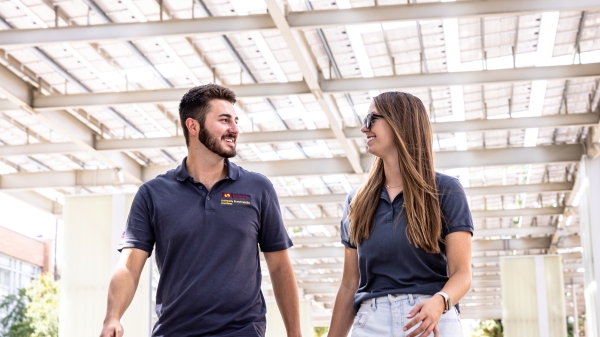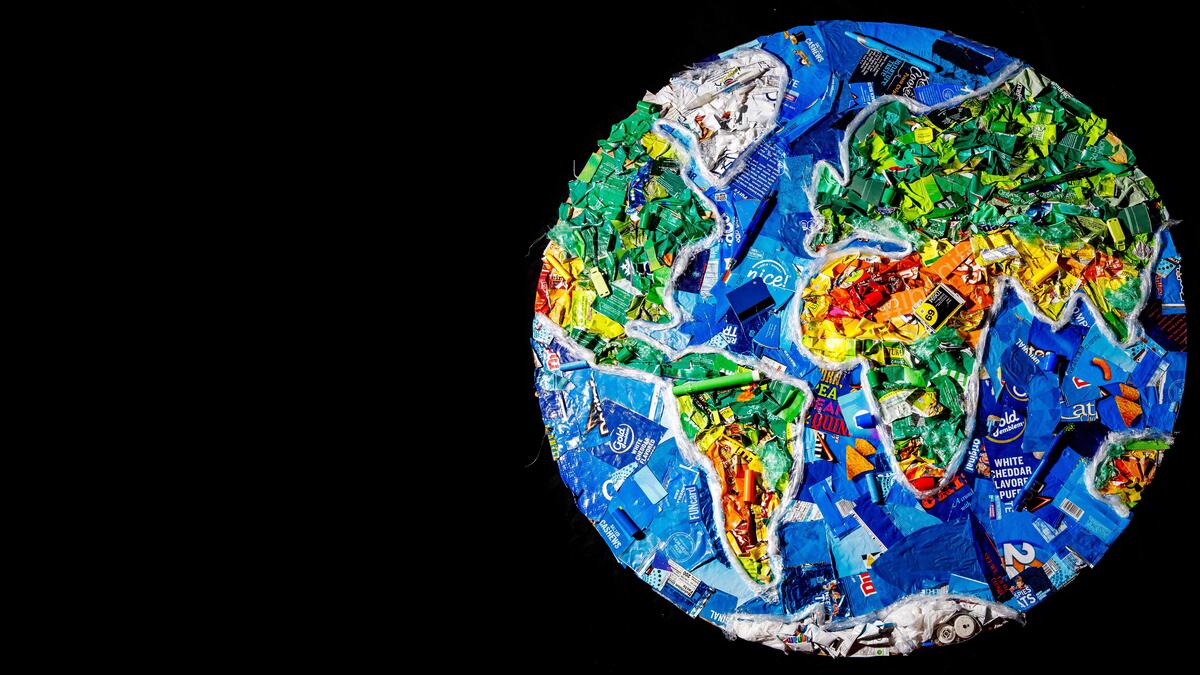What does “sustainability” mean? How can you incorporate sustainable practices into your daily life? Into your business? Into your classroom curriculum? Arizona State University and Wells Fargo have unveiled a new platform that helps answer these questions, providing trustworthy, relevant and solutions-focused sustainability content to global audiences.
The platform, Sustainable Earth, is the result of a longstanding relationship between two institutions that seek positive environmental outcomes in communities around the world.
“What we want to do with Sustainable Earth is take the expertise of ASU, couple that with the capacity of Wells Fargo and other organizations to reach huge populations, and create a space where people can find toolkits and trustworthy resources for being good stewards of the environment,” said Christopher Boone, dean of the ASU School of Sustainability.
Initially, the collaboration focused on educational efforts to train K–12 teachers on how to make sustainability part of their curriculum. Then, conversations between Boone and CaSondra Devine, head of enterprise sustainability at Wells Fargo, led to expanding the message of sustainability to broader audiences with the 24 Hours of Sustainability event on Earth Day 2019.
This event brought sustainability tools and solutions to people in every time zone at the top of each hour and reached nearly 1.7 million viewers.
“Part of our corporate responsibility strategy is to increase sustainability awareness and encourage people to take action,” Devine said. “Teaming up with ASU, a recognized leader in sustainability, also helps us engage with the next generation of ‘eco heroes’ and provide them with tangible examples of how they can live sustainably — rethinking how we grow and consume food; how we produce and dispose of the things we buy; the impact of our carbon footprint; and how to manage our natural, economic and human resources.”
“We thought, all right, the 24 Hours of Sustainability day was great, but how can we make sure that every day is the day for sustainability?” Boone said.
Rather than limit themselves to one day, Boone and Devine decided to create a platform where sustainability information is always accessible and able to inspire action.
In addition to materials for teachers wanting to make a difference in the classroom, Sustainable Earth has tools for families to improve their homes and neighborhoods, as well as for employees to help their businesses go green.
The site will collect community feedback so that its creators can continually adapt it to the needs of users, in addition to curating users’ own innovations to improve sustainability.
Boone and Devine plan to make sustainability trainings more accessible to all by hosting them on the site. In particular, they aim to provide small and diverse businesses with pathways to earn sustainability certifications, since they often face more financial or logistical hurdles to complete them than larger businesses. In the future, they also hope to have conversations with business leaders on their training needs in the post-COVID-19 market.
“We know that sustainability is a passion for many of our employees, as demonstrated by the actions they take as environmental stewards. Now, through the Sustainable Earth project, we celebrate this shared passion with our external stakeholders, continuing to build on the premise that the more we do individually, the bigger impact we will have collectively,” Devine said.
In the field of sustainability, people often focus on the nature of environmental problems and the negative outcomes of poor societal choices. While these are important to understand, Boone said, Sustainable Earth is about focusing on solutions and thereby empowering everyday people.
“The key message for us is that we think that the world is awash in good ideas,” Boone said. “We want to inspire people through the notion that solutions do exist, that we can be innovative and that we can actually do things that leave a positive impact.”
More Environment and sustainability

Charles Redman, founder of the School of Sustainability, faces a new adventure: Retirement
At the retirement celebration for Charles Redman on Oct. 22, two messages persisted: Redman’s contributions to Arizona State University helped to shape the interdisciplinary efforts we now find…

10 climate insights to guide our future
A group of globally renowned social, natural and climate scientists has once again convened to offer their newest annual synthesis report, “10 New Insights in Climate Science.”The report, published…

The future is green: Job demand translates to high employability for ASU sustainability grads
A 2023 report by Forbes on the state of green jobs confirmed what Arizona State University has been trumpeting for years: Sustainability will play a large part in the new economy.The report suggests…
